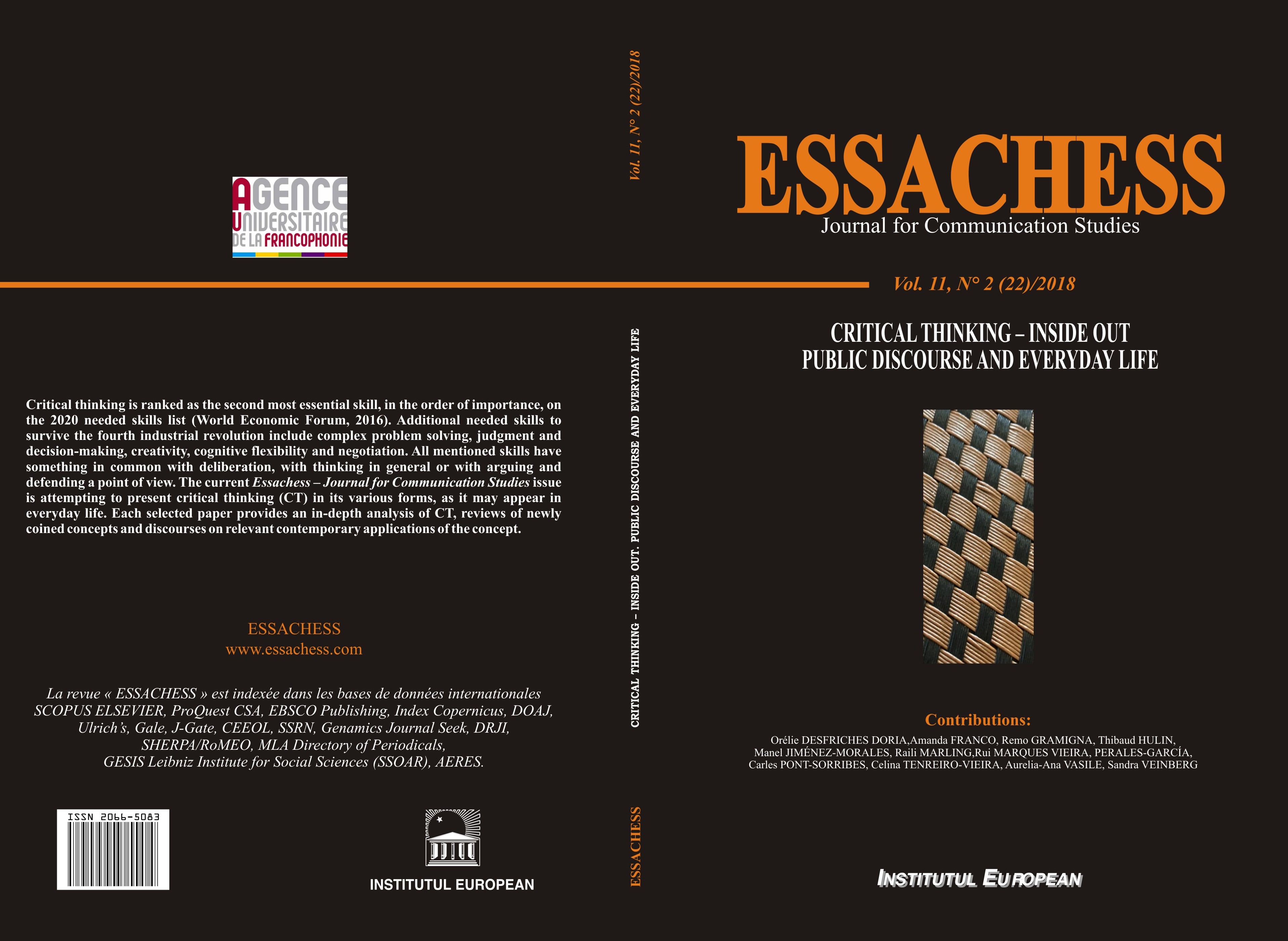Unfamiliar concepts as an obstacle for critical thinking in public discussions regarding women’s rights issues in Latvia. Reflective thinking in the ‘fake news’ era
Unfamiliar concepts as an obstacle for critical thinking in public discussions regarding women’s rights issues in Latvia. Reflective thinking in the ‘fake news’ era
Author(s): VEINBERG SandraSubject(s): Politics / Political Sciences, Politics, Philosophy, Social Sciences, Education, Law, Constitution, Jurisprudence, Human Rights and Humanitarian Law, Political Philosophy, Social Philosophy, Political Sciences, Civil Society, Communication studies, Sociology, Rhetoric
Published by: ESSACHESS
Keywords: women’s rights; Istanbul Convention; logical fallacies; barriers for critical thinking; fake news;
Summary/Abstract: In Europe it is now out of the question to express any doubts regarding the prevention of violence against women. The majority of the Latvian population also condemns the physical abuse of women; however, the Istanbul Convention which deals with this matter was not ratified here. A number of factors were at play, the most significant of which was pressure exerted through the direct influence of a campaign that had been organised by opponents of the broadest understanding of human rights. Such pressure was exerted on decision makers (MPs and political parties), with indirect impact on the population via social media and the news media outlets. Campaigns by interest groups which spread opposing views are not unusual in a democratic society; however, in this case there was no discussion between the opposing parties. The public domain was not open to an interaction of views and beliefs based on arguments and critical thinking, as the argument of the opponents rested entirely upon their beliefs, whereas the supporters of the convention relied upon valid proof. This article looks at the reasons behind the failure in terms of group communication to establish a constructive discussion on a topic that was so essential to Latvian society: one which served to combat and eradicate violence against women. It also seeks to establish whether the use of an irrational form of convincing technique contradicts the logic of critical thinking, and whether the emergence of unfamiliar and/or incomprehensible concepts on the agenda of a public discussion may serve to put the brakes on the constructive discussion of women’s rights issues which is so essential today to Latvian society as a whole.
Journal: ESSACHESS - Journal for Communication Studies
- Issue Year: 11/2018
- Issue No: 22 (2)
- Page Range: 31-49
- Page Count: 12
- Language: English

